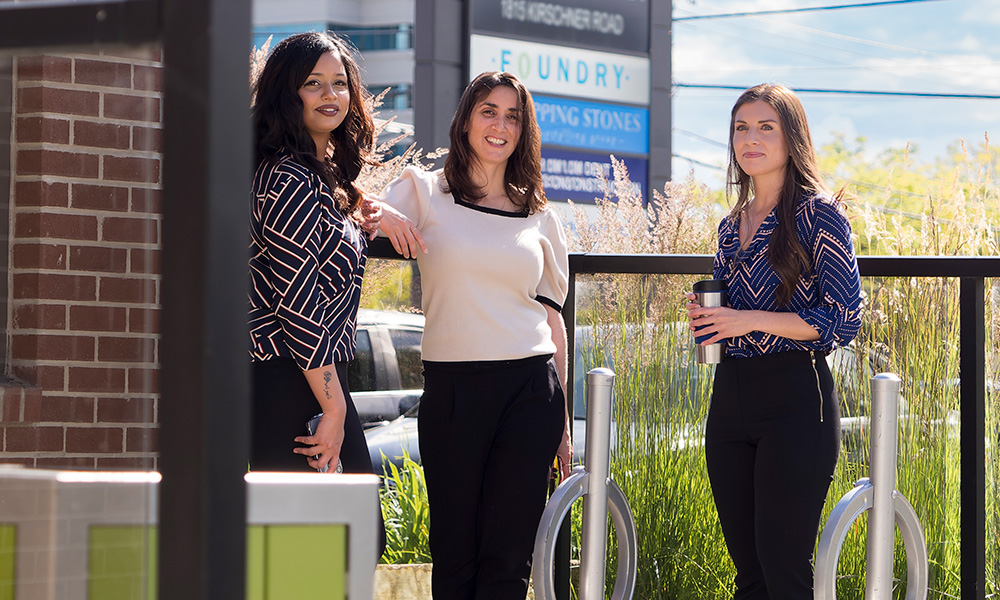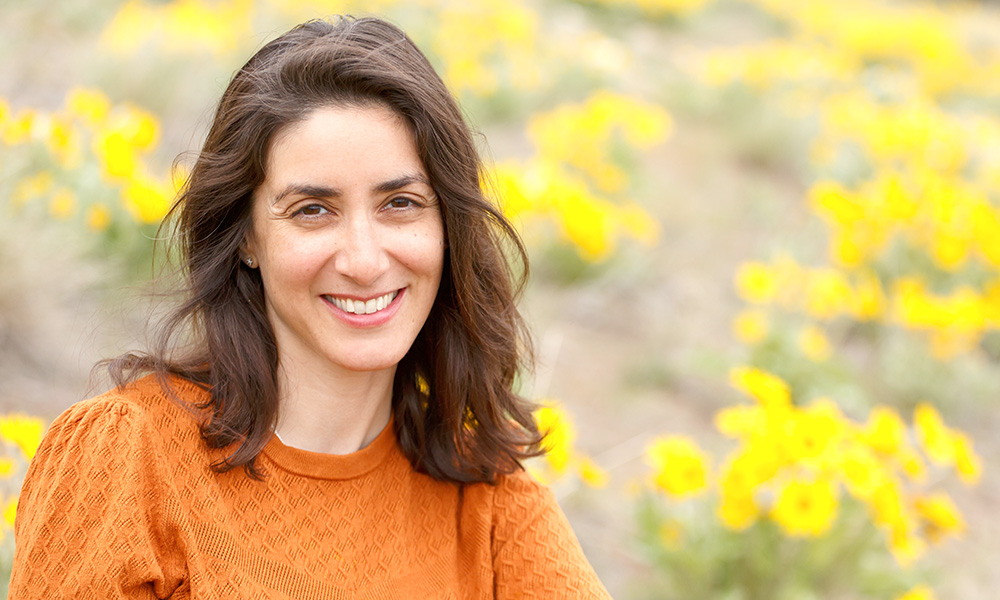The post Anti-racism starts with knowing history appeared first on UBC Okanagan News.
The post Community connections improve family and child wellbeing appeared first on UBC Okanagan News.

IN A ONE-MINUTE ANIMATED YOUTUBE VIDEO, a bunny named BonBon sits alone in its bed in a dim room, weakly illuminated by the glow of a cell phone. Rejection letters from various universities are pinned on BonBon’s bedroom wall, and on their phone is a message from a friend, who poses excitedly by a large UBC sign: “I got in!”
BonBon, feeling blah, scrolls down to other feeds. The first reports wildfires raging across the province—another downer. But the next, from Foundry—which offers wellness services to BC youth aged 12 to 24—makes BonBon pause. “Strong people seek support,” it declares.
It’s a deceptively simple message. But bundled into it is research illuminating how young people make decisions about whether or not to seek help with their mental health and life challenges. That research, still ongoing, is led by Dr. Shelly Ben-David, an Assistant Professor at UBC Okanagan’s School of Social Work.
Years ago, when Dr. Ben-David worked at NYU and the New York State Psychiatric Institute—where there were “amazing psychosocial interventions to help young people”—she noticed many struggling youths. Adolescence and young adulthood are when important psychosocial and neurobiological changes happen. If mental health issues are tackled early, that can help a young person avoid crises that can seriously disrupt milestones in their schooling, relationships, jobs and futures.
In Canada, statistics show youth in the 15 to 24 age group have the highest rates of substance abuse and mental health disorders, yet only 20 per cent get appropriate treatment.
Dr. Ben-David wanted to know why.
“If young people aren’t accessing services, or staying engaged with services, to me, that’s a glaring issue.” But there’s been little theoretically driven research examining the decision-making process struggling youth use to decide whether to access services. What are their barriers? What factors in their lives might nudge them to seek help?
In 2018, with the help of a Social Sciences and Humanities Research Council grant, Dr. Ben-David set out to probe the mystery of what gets young people through the front doors of organizations like Foundry, which has 11 centres across British Columbia.
With a team of more than a half-dozen UBCO graduate and undergraduate students from the School of Social Work helping her, Dr. Ben-David worked with Foundry Kelowna to recruit 41 youth—aged 15 to 24—into her study. She also collaborated with the Canadian Mental Health Association in Kelowna.
“Foundry is amazing,” says Dr. Ben-David, who strives to put community engagement into the heart of her research work. Youth (including high school and university students) and parent advisory councils were formed to help Dr. Ben-David’s UBCO team recruit participants and develop questions. “It was really important that community members, including young people, were involved in the research process.”
The input of youth on the very structure and implementation of her research, says Dr. Ben-David, enhanced its validity. “After all, they have more current expertise in being a young person,” she laughs.

Dr. Shelly Ben-David.
Using a decision-making framework called the Unified Theory of Behavior (UTB), Dr. Ben-David’s team conducted semi-structured interviews with the teens and young adults using Foundry. Those interviews were key to unearthing how youth decide to reach out for professional help with their issues—or suffer in silence.
In simple terms, part of the UTB framework that Dr. Ben-David and her student assistants employed during research interviews posits that the intention to do something is informed by five “constructs,” among them social norms, emotions and self-concept.
One example of an emotional construct, explains Dr. Ben-David, is that seeking a service could be “really scary for someone, which is going to affect their decision-making process.” For instance, depending on the social norms some youth face in their particular families or community, a young person seeking professional help for anxiety or depression might fear being stigmatized as weak.
Radha Ortiz, then a master’s student in social work, was one of Dr. Ben-David’s graduate research assistants. She undertook a variety of roles in the study; she helped build the conceptual model of the research, supported grant writing and related academic papers, and, most critically, conducted qualitative interviews with Foundry youth and their parents.
“It was a huge privilege to hear the stories of these youth and parents,” says Ortiz, who, as a young girl, immigrated with her parents to Canada from Argentina. That experience of navigating settlement in Canadian society instilled in Ortiz a passion for social work and justice, and led her to UBCO’s clinical social work program, where she focused on youth mental health.
“The earlier we can equip individuals with tools to understand themselves and their emotions, the better they fare when life throws adversity and big challenges their way.”
As she interviewed the youth at Foundry, Ortiz recalls, “Their desire to create change by participating in the research was very humbling and inspiring. For me, being a part of this study was very grounding and came at a critical time in my studies when I was feeling far removed from the people I hoped to serve afterward. This experience reinvigorated my passion for social work.”
With her research analysis in hand, Dr. Ben-David wanted to quickly translate it to a larger audience. “That’s why we did animated videos. We wanted young people to translate the data; individuals from Foundry Richmond helped write the scripts, design the animations and compose the music,” she says. So far, the team has created several short videos featuring BonBon, all designed to encourage young people to overcome any negative perceptions they might have about seeking health and social services.
“The kind of researcher I want to be is not just about writing academic papers, but also ensuring my work is translatable to general audiences,” says Dr. Ben-David. She intends for the findings in this study—and a new one about the divide among BC youth accessing digital mental health technologies—to influence health and wellness policies around the country and help shape how organizations like Foundry increase access to their services.
Ortiz, now employed as a clinical counsellor with Interior Health, continues to be involved in research with Dr. Ben-David’s youth mental health lab. Her experience as a UBCO graduate research assistant has deepened her understanding of youth mental help and shaped her own approach to her clinical practice.
“What really stands out for me from the Foundry study—which is mirrored in my work—is the role emotions play in help-seeking and mental health. The earlier we can equip individuals with tools to understand themselves and their emotions, the better they fare when life throws adversity and big challenges their way.”
The post Improving youth mental health appeared first on UBC Okanagan News.
The post UBCO Downtown appeared first on UBC Okanagan News.
